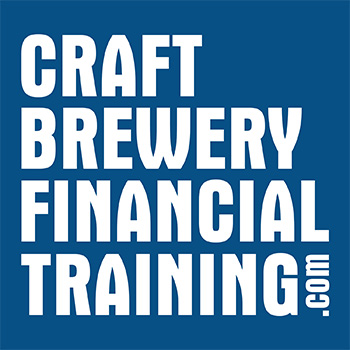 “I made my money by selling too soon.” Bernard Baruch
“I made my money by selling too soon.” Bernard Baruch
If you’re thinking of selling your brewery now or in the future, this article is for you.
Craig Farlie is a founder and Managing Director of Farlie Turner & Co. an investment banking firm. Craig loves beer, and loves helping craft breweries make money. His firm has worked with The Bruery, Funky Buddha, and Storied Craft Brewers, among others.
And today, he’s here to give his guidance on how to sell your brewery.
Below is my interview with Craig, and the advice he has for craft breweries who may be interested in a sale. There’s no shame in considering a sale of your business. This is America. We buy things and sell things. If you want to sell, just make sure you do it right. Read on, Craig has some sage advice to follow.
Q: What is the first step a craft brewery should take if they are interested in exploring a sale?
A: Make sure you have buy-in from key shareholders; make certain everyone is on same page, and pulling in the same direction
Inform a handful of key employees and get them “on board” – CFO, Head of Sales, etc. Explain to them the objectives of the transaction, as well as the ultimate goal
Understand your objectives: the highest price and best “fit” are not always the same party
Talk to a financial advisor – both personal and corporate
Hire an experienced corporate attorney; this may not be the same attorney that you used to set up the company
Make sure to have someone on your side who does this for a living — too many brewers think they can do this on their own, then take their eyes off the ball and the business begins to suffer
Q: You’ve mentioned there are many more craft brewery deals that don’t get done compared to the ones that do. What are the reasons why these deals don’t get done?
A: Poor / declining performance in a highly competitive market
Decent size in terms of barrellage but spread too thin in today’s market
Breweries that don’t stand out, or are just another “me too” brewery
A lack of ability to withstand the thorough due diligence that will occur during a sale process and/or lack of financial controls
Inflated price expectations
Q: Are there common themes, or lessons here that breweries can learn from?
A: Be aware of what’s happening in the market; don’t be an ostrich and stick your head in the sand
Make sure your business plan is “differentiated”
Understand where your growth is going to come from and focus like a laser on that
Understand your financial performance and have the proper accounting controls in place
Q: Everyone loves rules of thumb and industry averages. Setting aside the fact that these metrics are usually a bunch of BS, what range of values have you seen with regard to: the $ per BBL metric, multiple of EBITDA, and multiple of sales?
A: EBITDA: 6 x – 12 x; we’ve seen both higher (some significantly higher over the past several years) and lower, but the above is a fair proxy for the current market
We view multiples of sales and/or $ per BBL as largely irrelevant, so we honestly don’t pay much attention to them
Q: Valuations should be based on cash flow and return on investment. However, lots of deals seem to be lacking these fundamentals and something else is driving value. What have you seen as the primary drivers of value? Are there value drivers that don’t show up on the financial statements?
A: Fear of Missing Out (FOMO) on the part of certain buyers (i.e., I missed the last one and need to get this one)
The “fit” with a larger strategic buyer’s footprint, both in terms of geography and styles
Lack of distribution conflicts; easier to expand without the headache of potentially having to re-align distributors
Q: You noted in your presentation that existing distributor contracts provide a complication for strategic buyers. Why do you feel it’s important for strategic buyers to unwind distribution relationships after an acquisition?
A: Strategics want to maximize sales while “minimizing” corporate effort: it’s easier to target attention and get a distributor’s mindshare if all brands are in the same house
Q: Related to above, what guidance would you give a craft brewery with regard to distributor contracts?
A: Most importantly, pick the best “fit” in each market
Stay close to home as long as you can and go as deep as you can in that particular market
If the ultimate goal is to sell the company, think about aligning distribution houses – although this concern should not be top of mind (i.e., don’t let the tail wag the dog)
Q: What’s one piece of advice you’d give a craft brewery that was interested in eventually selling their business? What’s one thing they should do now to make ready?
A: Start preparing for a sale today – even if you never intend to sell. There’s nothing wrong with having a sound growth plan, organized corporate documents and thoroughly analyzed financials
It’s not enough to make “great” liquid anymore. Lots of brewers have that. You need to have a savvy business sense, as well. Make sure to have key positions filled with quality people
Hire a good team of advisors to guide you through what can be a very stressful process. You may only do this once, and you want to surround yourself with people that do it for a living – maximize your chance for success by doing things the right way
Wrap Up + Action Items
There are some gold nuggets here to be sure. Print a copy of the Q&A and make notes on how this can apply to your brewery.
If you’re interested in speaking with Craig directly, click here to get his bio and contact info.
Selling your brewery is a huge deal, with many things to consider. Do your research, listen to experts, and build a strong team. The value of your brewery is depending on you.





